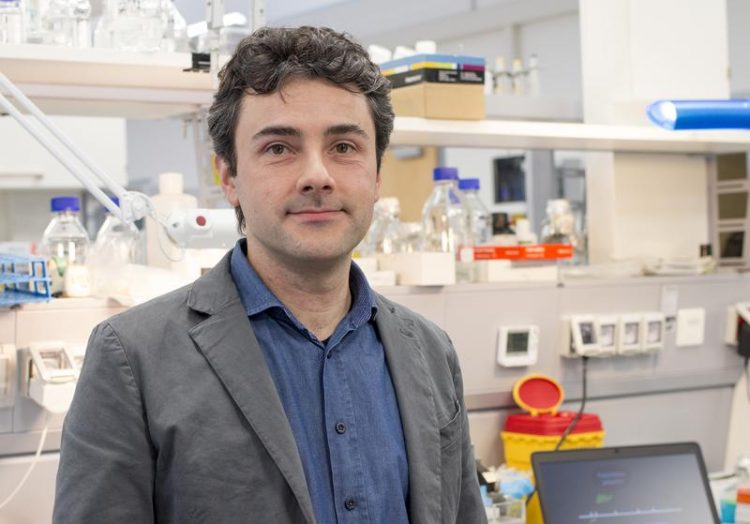53 genes responsible for kidney functionality discovered

Cristian Pattaro, researcher of the EURAC Center of Biomedicine EURAC
Chronic kidney disease is a serious global health problem. In Italy alone some 3.5 million people suffer from the condition, which in severe cases can lead to dependency on dialysis or even death (10% of the population is likely to be affected throughout their lives). This disease depends upon a number of factors, ranging from diet to lifestyle as well as genetic predisposition.
A recently-published study in Nature Communications, co-ordinated by Cristian Pattaro, researcher at the European Academy of Bolzano (EURAC) and Caroline Fox from the Harvard Medical School of Boston, USA, now helps shed light on our knowledge of the kidney.
The researchers have discovered and distinguished 53 genes associated with its functionality (its ability to filter metabolic wastes from the blood) and with the development of the organ itself. To achieve this, the geneticists who authored the study examined a huge quantity of data from 175,000 people around the world.
The data were provided by CKDGen (CKD = chronic kidney disease), an international consortium founded in 2009 that consists of some 60 studies in 15 countries worldwide, with EURAC as one of its co-ordinating centres.
“Thanks to the work of the team and the very large amount of data, we were able to conduct extensive bioinformatic analyses. Step by step we are creating a genetic ID card for the kidney,” explains Pattaro “It is a complicated puzzle, but slowly the overall picture is becoming clearer.”
The work will now continue by studying the role of every single gene in detail. For example, it was found that one of the 53 genes catalogued is associated with the ability of the kidney to effectively filter wastes from the blood. The gene can take different forms in different individuals, corresponding to a greater or lesser filtering capacity. Could a malfunction in this feature cause problems for our bodies?
“No gene mutation is in itself lethal, but it may slightly help or hinder the correct function of the kidney,” says Pattaro.
The detailed study of the 53 genes discovered adds new pieces to the complex picture of renal disease, while allowing the identification of the genetic mutations that are especially involved and active in the pathology. Such basic research may in future open new horizons for the development of targeted gene therapies for healthy kidneys.
https://www.youtube.com/watch?v=DUr2cIuSMcA video interview with Cristian Pattaro, researcher of the EURAC Center of Biomedicine.
http://www.nature.com link to Nature Communications.
Media Contact
All latest news from the category: Life Sciences and Chemistry
Articles and reports from the Life Sciences and chemistry area deal with applied and basic research into modern biology, chemistry and human medicine.
Valuable information can be found on a range of life sciences fields including bacteriology, biochemistry, bionics, bioinformatics, biophysics, biotechnology, genetics, geobotany, human biology, marine biology, microbiology, molecular biology, cellular biology, zoology, bioinorganic chemistry, microchemistry and environmental chemistry.
Newest articles

A new look at the consequences of light pollution
GAME 2024 begins its experiments in eight countries. Can artificial light at night harm marine algae and impair their important functions for coastal ecosystems? This year’s project of the training…

Silicon Carbide Innovation Alliance to drive industrial-scale semiconductor work
Known for its ability to withstand extreme environments and high voltages, silicon carbide (SiC) is a semiconducting material made up of silicon and carbon atoms arranged into crystals that is…

New SPECT/CT technique shows impressive biomarker identification
…offers increased access for prostate cancer patients. A novel SPECT/CT acquisition method can accurately detect radiopharmaceutical biodistribution in a convenient manner for prostate cancer patients, opening the door for more…





















